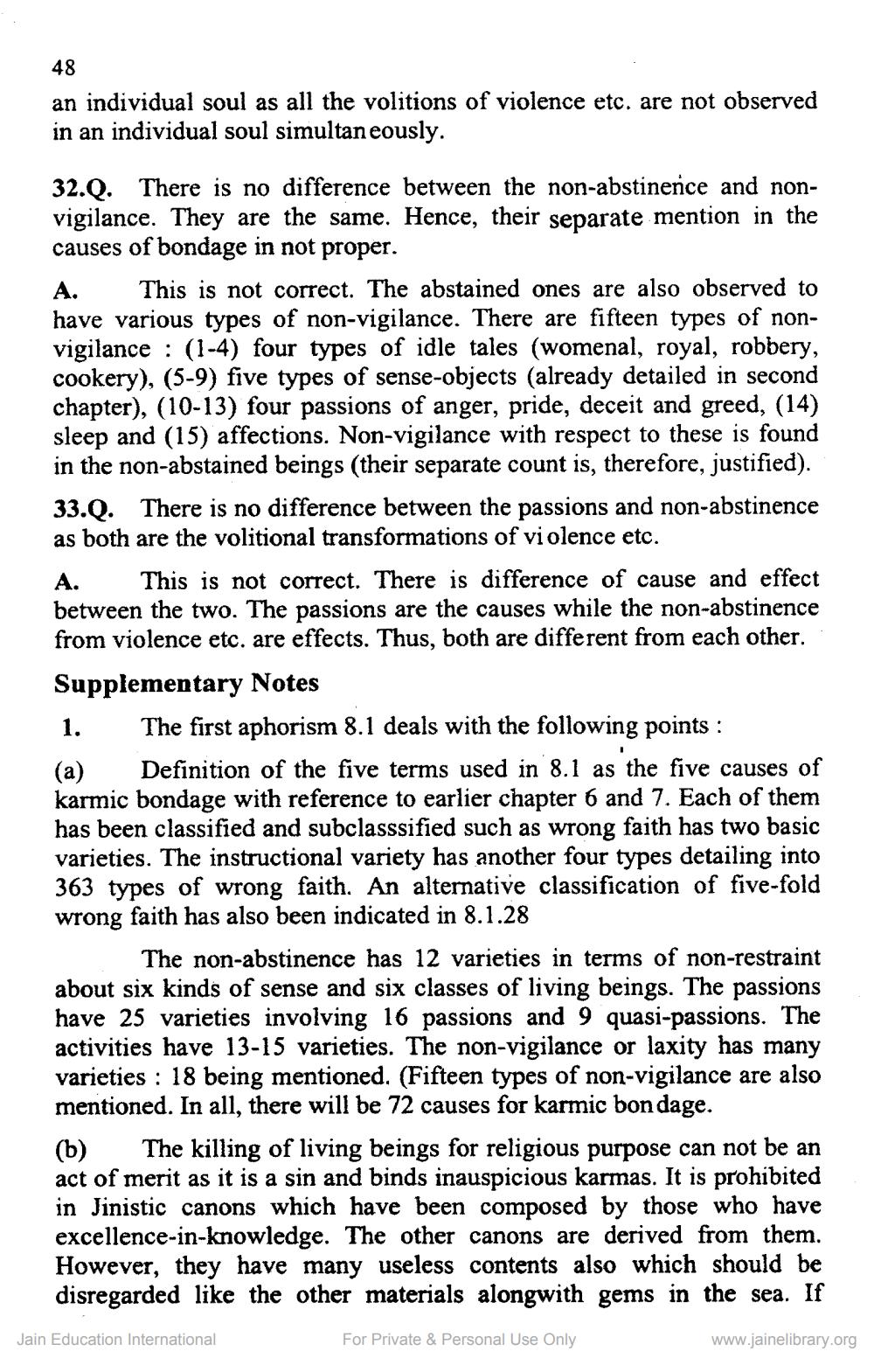________________
48
an individual soul as all the volitions of violence etc. are not observed in an individual soul simultaneously.
32.Q. There is no difference between the non-abstinence and nonvigilance. They are the same. Hence, their separate mention in the causes of bondage in not proper.
A. This is not correct. The abstained ones are also observed to have various types of non-vigilance. There are fifteen types of nonvigilance (1-4) four types of idle tales (womenal, royal, robbery, cookery), (5-9) five types of sense-objects (already detailed in second chapter), (10-13) four passions of anger, pride, deceit and greed, (14) sleep and (15) affections. Non-vigilance with respect to these is found in the non-abstained beings (their separate count is, therefore, justified). 33.Q. There is no difference between the passions and non-abstinence as both are the volitional transformations of violence etc.
A. This is not correct. There is difference of cause and effect between the two. The passions are the causes while the non-abstinence from violence etc. are effects. Thus, both are different from each other. Supplementary Notes
1. The first aphorism 8.1 deals with the following points:
I
(a)
Definition of the five terms used in 8.1 as the five causes of karmic bondage with reference to earlier chapter 6 and 7. Each of them has been classified and subclasssified such as wrong faith has two basic varieties. The instructional variety has another four types detailing into 363 types of wrong faith. An alternative classification of five-fold wrong faith has also been indicated in 8.1.28
The non-abstinence has 12 varieties in terms of non-restraint about six kinds of sense and six classes of living beings. The passions have 25 varieties involving 16 passions and 9 quasi-passions. The activities have 13-15 varieties. The non-vigilance or laxity has many varieties 18 being mentioned. (Fifteen types of non-vigilance are also mentioned. In all, there will be 72 causes for karmic bondage.
(b) The killing of living beings for religious purpose can not be an act of merit as it is a sin and binds inauspicious karmas. It is prohibited in Jinistic canons which have been composed by those who have excellence-in-knowledge. The other canons are derived from them. However, they have many useless contents also which should be disregarded like the other materials alongwith gems in the sea. If
For Private & Personal Use Only
www.jainelibrary.org
Jain Education International




